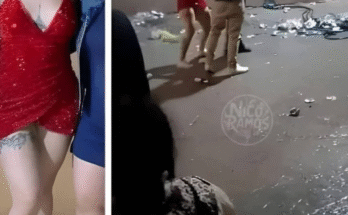In the age of social media, it takes just one post to create a worldwide panic—and that’s exactly what happened when a fake headline claiming “Justin Bieber dead at 26” went viral. What started as a so-called “prank” quickly spiraled into chaos, confusion, and outrage from fans around the world.
The fake news prank originated from a parody news account on social media. The post featured a realistic-looking screenshot of a breaking news article with the headline, “Canadian Pop Star Justin Bieber Found Dead in Hotel Room, Age 26.” It included a photo of Bieber and a fabricated quote from an “official source.” Within minutes, it began spreading like wildfire on Twitter, Facebook, and even some smaller news blogs that didn’t fact-check before reposting.
Millions of “Beliebers” were instantly heartbroken and confused. Fans flooded the internet with emotional posts, hashtags like #RIPJustinBieber and #GoneTooSoon started trending, and TikTok videos of fans crying surfaced everywhere. For a few intense hours, it genuinely felt like the world had lost one of its biggest pop stars.
The problem? Justin Bieber was very much alive—and totally unaware of what was happening.
When he finally addressed the situation later that day with a short post on Instagram saying, “Still here. Still vibin’. Y’all crazy lol,” it brought relief but also highlighted the darker side of prank culture.
While some laughed it off, many others were furious. Fans called it disrespectful, traumatizing, and a twisted way to get views and likes. Even some celebrities chimed in, condemning the prank and calling for social media platforms to crack down on fake news accounts.
The prankster behind the hoax later claimed it was “just for fun” and “meant to be a joke,” but the damage had already been done. False death hoaxes aren’t new—everyone from Morgan Freeman to Jackie Chan has been “killed off” online before—but when it’s done in such a believable, professional-looking way, it blurs the line between humor and harm.
For some people, especially younger fans, the emotional impact was real. Imagine waking up to see your childhood idol supposedly dead—it’s not just shocking; it can be devastating. And in a world already overloaded with bad news, playing with death as a punchline doesn’t sit well.
The incident sparked a wave of discussions about online accountability, fact-checking, and the ethics of viral content. Should people be banned for spreading false celebrity death news? Should parody pages be labeled more clearly? Is shock-value content still funny in 2025?
While Justin himself seemed to take it in stride—likely used to internet craziness by now—the prank served as a wake-up call. The internet isn’t a joke playground when millions of real emotions are involved. Words matter. Headlines matter. And in today’s digital age, fake news can spread faster than truth.
In the end, Justin Bieber didn’t die at 26. But the reaction to the prank showed just how deeply people still care about him—and how quickly misinformation can disrupt reality. So the next time you see a shocking headline, take a breath. Check the source. And maybe, just maybe, don’t believe everything you scroll past.


